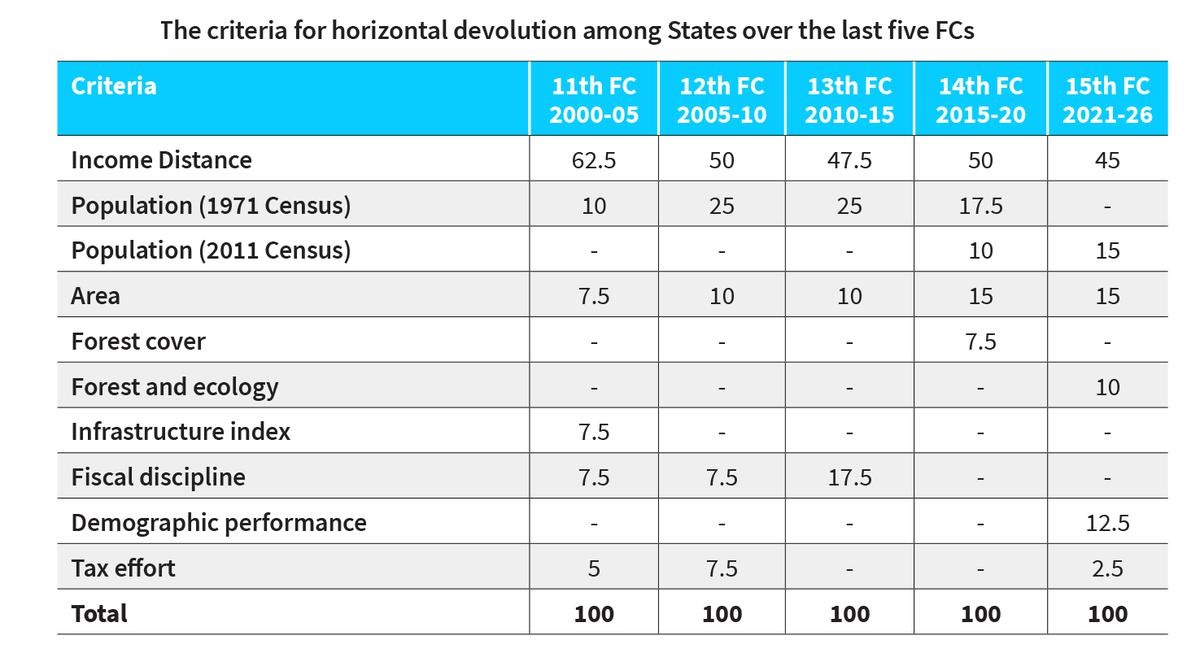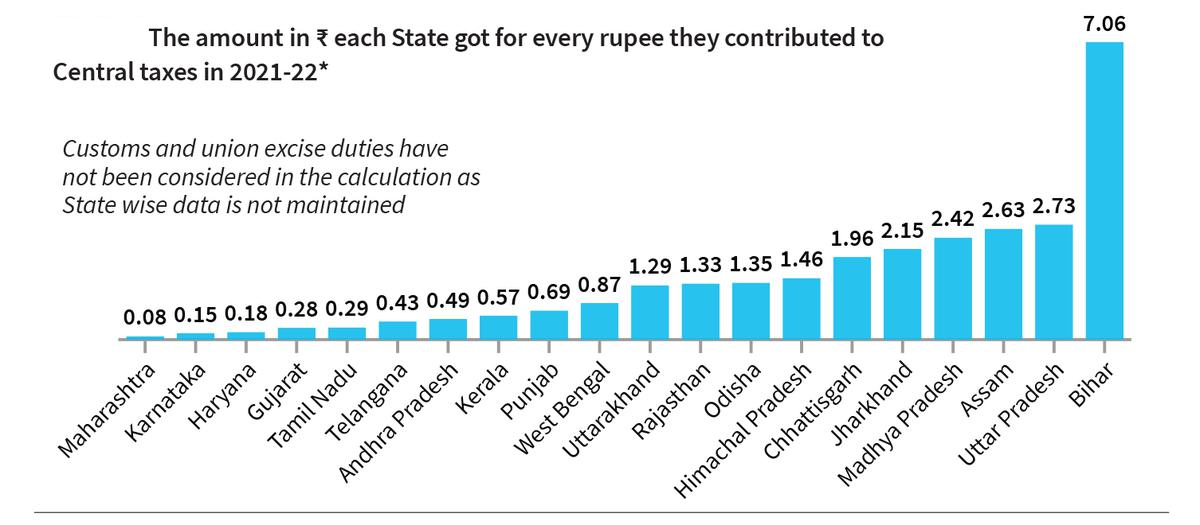Governance
Financial Devolution in India
- 26 Feb 2024
- 5 min read
For Prelims: Tax Devolution, Grants-in-aid, GST implementation, Comptroller and Auditor General of India, 16th Finance Commission.
For Mains: Current Status of Fiscal Federalism in India
Why in News?
Several Indian states have claimed that they have not been receiving their fair share as per the present scheme of tax devolution. They argue that their states contribute more to the national tax pool than they receive in return.
What is the Current Status of Tax Devolution in India?
- About: Financial devolution refers to the transfer of financial resources and decision-making powers from the central government to the states.
- Constitutional Framework: Article 270 of the Constitution outlines the distribution of net tax proceeds between the Union government and the States.
- The Finance Commission (FC), constituted every five years, provides recommendations for the vertical distribution of funds from the central government's divisible pool of taxes (excluding cess and surcharge).
- Additionally, it offers a formula for the horizontal allocation of these funds among individual states.
- Apart from the share of taxes, States are also provided grants-in-aid as per the recommendation of the FC.
- The 16th Finance Commission, chaired by Dr Arvind Panagariya, has been tasked with making recommendations for the period 2026-31.
- Criteria for Devolution Among States: Currently, the share of States from the divisible pool (vertical devolution) stands at 41% as per the recommendation of the 15th FC.
- States Contribution Versus Devolution:
- Concerns Regarding Tax Devolution:
- Exclusion of Cess and Surcharge: Concerns are raised regarding the exclusion of cess and surcharge from the divisible pool of tax revenue, leading to a reduction in states' share of tax revenue.
- Cess and surcharge collected by the Union government is estimated at around 23% of its gross tax receipts for 2024-25, which does not form part of the divisible pool and hence not shared with the States.
- Inadequate Compensation for GST Implementation: Some states feel that compensation for revenue losses during GST implementation is insufficient, urging for a fairer mechanism to address revenue shortfalls.
- Lack of Flexibility in Fund Utilization: Some States advocate for greater flexibility in utilizing devolved funds to address local priorities.
- Exclusion of Cess and Surcharge: Concerns are raised regarding the exclusion of cess and surcharge from the divisible pool of tax revenue, leading to a reduction in states' share of tax revenue.
Note:
- Income Distance: Refers to the disparity between a state's income and the state with the highest per capita income.
- States with lower per capita income receive a higher share to ensure equity among states.
- Population: Represents the population count based on the 2011 Census. Previously, until the 14th Finance Commission, population from the 1971 Census was considered, but this practice was discontinued in the 15th Finance Commission.
- Forest and Ecology: Considers the proportion of dense forest area in each state compared to the total dense forest area across all states.
- Demographic Performance: Introduced to recognize states' efforts in population control, with states exhibiting lower fertility ratios receiving higher scores.
- Tax Effort: Used to reward states demonstrating higher efficiency in tax collection.
Way Forward
- Review of Fiscal Federalism Framework: There is a need to conduct a comprehensive review of the fiscal federalism framework to identify gaps and inefficiencies in the devolution process.
- This may involve establishing a committee or commission to assess the effectiveness of existing mechanisms and propose reforms.
- Performance-Based Incentives: Linking additional devolution to performance indicators in areas like good governance, transparency, and development outcomes could incentivize responsible resource management.
- Strengthening Institutions: Empowering institutions like the Comptroller and Auditor General of India (CAG) can ensure effective oversight and accountability in managing devolved funds.
UPSC Civil Services Examination, Previous Year Question (PYQ)
Prelims
Q. Consider the following: (2023)
- Demographic performance
- Forest and ecology
- Governance reforms
- Stable government
- Tax and fiscal efforts
For the horizontal tax devolution, the Fifteenth Finance Commission used how many of the above as criteria other than population area and income distance?
(a) Only two
(b) Only three
(c) Only four
(d) All five
Ans: (b)
Mains
Q. Discuss the recommendations of the 13th Finance Commission which have been a departure from the previous commissions for strengthening the local government finances. (2013)






